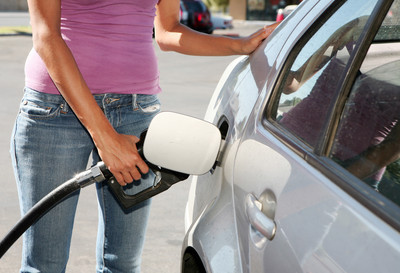Supply up, demand down

It’s getting to be that time of year when gasoline prices start creeping up.
And although the price for petrol is starting to increase, it’s certainly not spiking at last summer’s alarming rate.
Or even the summer before that.
Actually, since the massive drop in gasoline prices seen in late 2008, we haven’t seen fuel prices in the valley this low since 2005.
The average price for regular gasoline was $2.18 a gallon on Friday, according to VegasGasPrices.com. That’s a five-cent increase from the week before. A year ago it was $3.63 a gallon.
The question is, will it remain that way or are we on our way to having our wallets cleaned out at the pump?
Unfortunately, the answer doesn’t seem to be very obvious.
There are two major factors in direct conflict with each other. One supports low fuel prices, and the other would predict sky high costs.
The price for a barrel of crude oil, the main ingredient in gasoline, has been on the rise of late. On Friday the price neared $60 a barrel, the highest it has been in six months.
The increase of the cost of crude oil futures would indicate that we are on our way to seeing higher prices at the pump.
At least it has in the past.
There seems to be heavy speculation among investors that because of government stimulus packages, not only in the United States but all over the world, that a large influx of money is going to be spent.
And as more money is spent, the demand for crude oil will increase.
Francisco Blanch, head of global commodity research at Bank of America Merrill Lynch, told the Associated Press, “If we print enough money, we will get people to buy. If you give money to the world, the world will spend it.”
But the rising price of crude oil is based on speculation, and that seems to be in complete conflict with the current economic climate and trends.
And that may bode well for those hoping that gasoline prices stay near the current level.
Unemployment figures are still up, and spending and traveling are down.
Perhaps the biggest factor is the enormous stockpile of U.S. oil inventories, which according to the Wall Street Journal are at a 19-year high.
To recap: Supply is up and demand is down.
I think I remember reading something in one of those economics for morons books about that not being a smart way to get a good return on your investment.
Still, Gene McGillian, an analyst at Tradition Energy in Connecticut, told the Wall Street Journal, “The drum beat is saying the economy is getting better and the commodity market — especially oil — is a good place to be situated when it happens.”
But there seems to be a risk in doing so.
Michael Coleman, managing director of the Aisling Analytics hedge fund in Singapore, told The Associated Press, “There’s a 20 to 30 percent risk that things stabilize and then get worse again. In that scenario, oil would go to $20” a barrel.
If that happens, we might see some record lows in gasoline prices, along with some suits leaping from the tops of tall buildings.
The good news is that as long as demand is down and supply remains high, the price of gasoline should remain somewhat stable.
But if you are rooting for low gasoline prices, doesn’t that mean you are also pulling for the recession to continue?
Pick your poison.
If you have a question, tip or tirade, call the Road Warrior at 702-387-2904, or e-mail him at roadwarrior@reviewjournal.com. Please include your phone number.